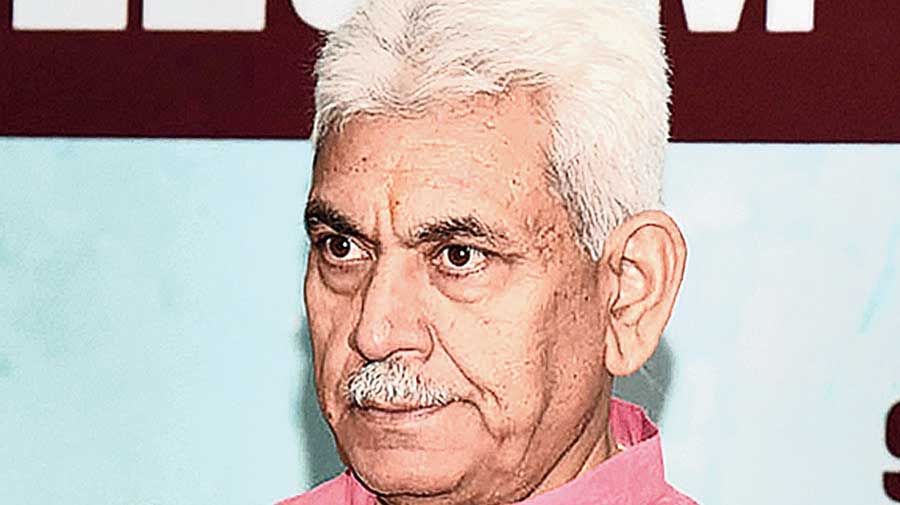The Jammu and Kashmir administration has invited Sangh parivar fury by asking government departments in Jammu for details of employees who were “over-ground” or “underground” RSS workers, appearing to club the organisation with outlawed groups like the Jamat-e-Islami and triggering rumours of an impending ban.
After many employees and the parivar expressed outrage, lieutenant governor Manoj Sinha’s administration is learnt to have stopped the process, which seems to have been a somewhat incautious response to an RTI query.
Both the Union Territory administration, controlled directly by the Centre, and the BJP have been caught off guard and left embarrassed by the episode.
Officials said the government had in April received an RTI application from Jammu resident Sudhir Kumar that sought details of the employees linked to the RSS — which many government staff in Jammu are — and their participation in RSS shakhas.
The general administration department (GAD) forwarded the application to other departments seeking these details. Employee scans for “over-ground” and “underground” members of banned organisations is common in militancy-hit Jammu and Kashmir.
Responding to the GAD query, several government institutions in Jammu, including colleges, sought online declarations from their employees that they were not associated with the RSS – which is the usual method adopted for such inquiries.
This had the grapevine agog with rumours that the government planned to ban the RSS.
Following the uproar, the central public information officer (CPIO) of the GAD disposed of the RTI application on June 4, saying the records did not contain the information sought.
“Whereas, the Right to Information Act, 2005, the rules made thereafter and the law laid down by the Hon’ble Supreme Court… clearly prescribes that only such information is to be provided which is already available with the central public information officers and no information is required to be created,” the CPIO’s order read.
Officials said the order would “put the controversy at rest” and stressed that departments are not required to seek any such information from their employees.
BJP spokesperson Anil Gupta admitted to anger in the RSS and said he had sought an investigation.
“The RSS is not a banned organisation; such data are kept only relating to the banned organisations. The CPIO in the GAD should have replied clearly on those lines,” Gupta told The Telegraph.
“But I don’t know what his motive was. I have been given to understand that he did not take clearance from the GAD secretary. He did it on his own.”
Gupta said that since the order had come from the GAD, other departments began collecting the data.
“Generally, people were annoyed about what was happening. The rumour went that they wanted to ban the RSS.... So the anger increased,” he said.
“It’s a temporarily resolved issue. One needs to go into the details how this episode started — (find out) who is responsible and who is the person who bypassed channels... and personally he should be held accountable.”
In March 2019, months before the abrogation of Article 370 provisions, the then state government had banned the separatist Jamat-e-Islami and the Jammu and Kashmir Liberation Front.
Following this, scores of their leaders and activists were arrested.











